Description
The Cup: Sweet and tart with praline, lemon, dried berry, and coriander flavors.
There is much to be excited about in the world of Yemen coffees: For one, the specialty-coffee market there has seen some improvement and growth in the past few years, as the quality-focused work of entrepreneurs (such as our partners, about whom we’ll say more below) have gained attention. Another relatively recent development has been the discovery of and research surrounding the genetic diversity of varieties found in Yemen. Coffee researchers have classed a set of coffee varieties in Yemen as a genetic group called Yemenia, which are a collection of landrace types that have developed over centuries in Yemen and are particularly well-adapted to the arid, difficult climate there. This genetic information has potentially significant implications to the importance of Yemenia coffees for the future development of drought-resistant cultivars, as well as for research purposes into the origins of Arabica coffee and its historical mutation as it’s been transplanted around the world.
Now, about this specific coffee…
A few years ago, Cafe Imports’ head of sourcing, Jason Long, was on a long hunt for spectacular Yemen coffees—the kind the coffee-history books are literally written about—and he finally found some in the mid-2010s, when he met Shabbir Ezzi, an entrepreneur and the owner of exporting company Al-Ezzi Industries. Shabbir has invested not just money, time, and energy, but also his life by relocating to Yemen in order to make high-quality coffee a viable, sustainable, and empowering pursuit for the farmers in and around the coffee region of Haraaz. Shabbir had the passion for improving Yemeni coffee, but not necessarily the background in quality development: Jason requested that Al-Ezzi focus on buying fresh (not dried) cherries from producers and to dry the cherries evenly on raised beds rather than the traditional patios and rooftops. Shabbir agreed, and the collaboration has had remarkable results. Al-Ezzi still works with producers in the traditional way as well, and is able through their efforts in sourcing and sorting to buy coffee at different levels of quality and traceability from producers in Yemen.
The ways that Al-Ezzi does business in Yemen’s coffee market is substantially different from the norm. Here are the main points that make their model appealing to us at Cafe Imports.
- Farmers are paid a high base price for bringing their coffee to Al-Ezzi’s own or participating receiving stations, and are given premiums for coffees that meet certain standards of moisture, quantity, and quality selection.
- Coffee farmers are voluntarily issued ID cards, which are used not only as a point of pride and respect but also to keep track of their deliveries and ensure proper, timely payment.
- Each farmer’s individual contributions are meticulously recorded, which means the coffees are traceable down to individuals—highly unusual in a country where the average farmer produces less than 100 kilos of cherry.
- Fresh, ripe red cherries earn an additional premium over dried cherries (how coffee is traditionally sold at market), as buying fresh cherries allows Al-Ezzi to ensure ripeness and quality before drying, and to control the drying process for evenness.
Because of this alternative way of doing business with coffee farmers in Yemen, Al-Ezzi and Cafe Imports are able to offer different “tiers” of product from these growers, who are paid according to their quality and volume.
- Moka Yemeni –Workhorse coffees of reliably good quality purchased as dried cherry and milled in Sana’a at Al-Ezzi’s facility. These coffees are a blend of different types and grades of coffees and have limited traceability but a classic Yemen profile.
- Haraaz Traceable-Dried cherries purchased directly from producers who hold Al-Ezzi–issued producer ID cards in order to allow for both proper distribution of funds and full traceability.
- Haraaz Fresh –Fresh coffee cherries purchased directly from producers in the Sharqui Haraaz microregion, where Al-Ezzi receives coffee at local collection points. Fully traceable through the producer ID cards. Coffee is dried on raised beds and milled in Sana’a.
- Haraaz Red-Fresh cherries purchased directly from producers who have picked or sorted perfectly ripe fruit and delivered it immediately after harvest. Fully traceable through producer ID cards. Coffee is dried on raised beds and milled in Sana’a.
- Haraaz Microlot-Fresh red cherries purchased from a single producer or small cooperative in a quantity great enough (at least 5 bags) to keep isolated and marketed under the grower or growers’ name.
This lot comprises fresh coffee cherries collected at the Mahal Aqeequl Yemen Drying Station that collaborates with Al-Ezzi in the collection and tracing of high-quality coffee cherry from farmers in the area.

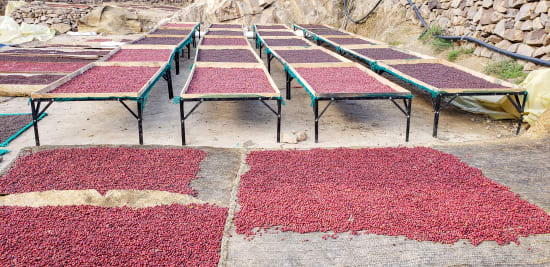
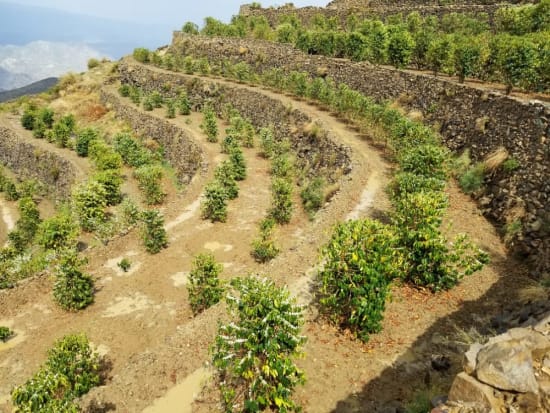
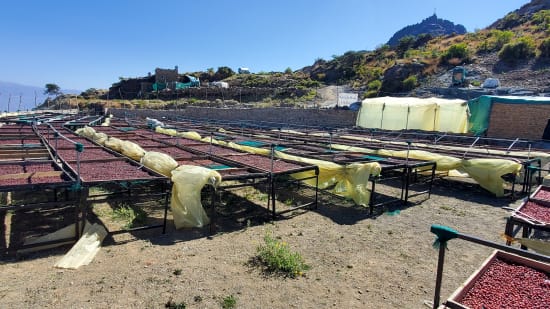
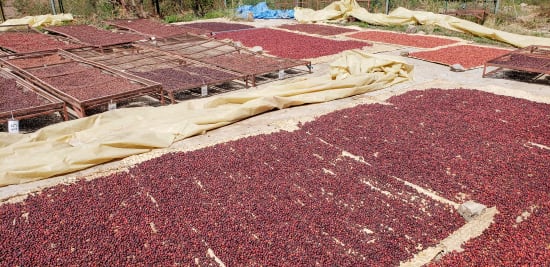
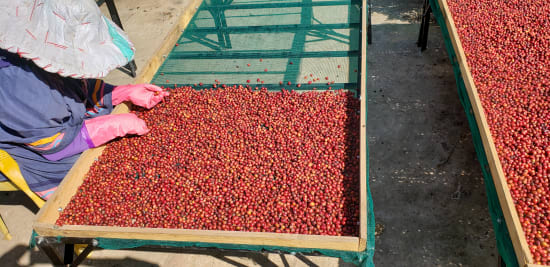
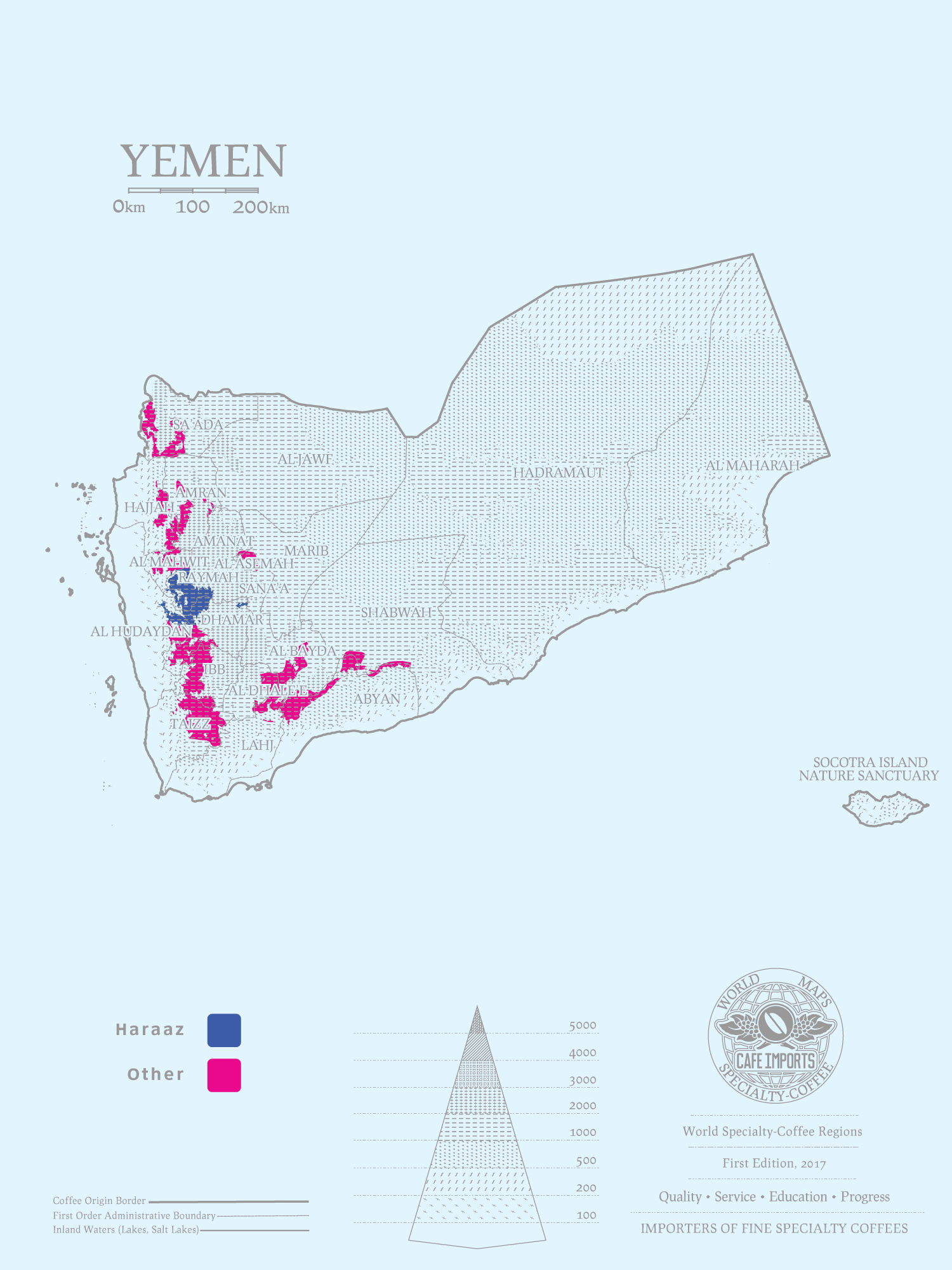

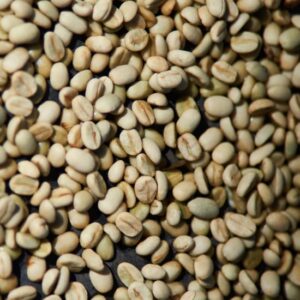
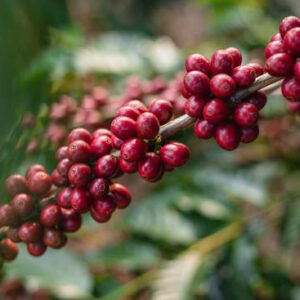
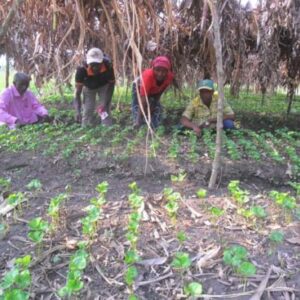
Reviews
There are no reviews yet.